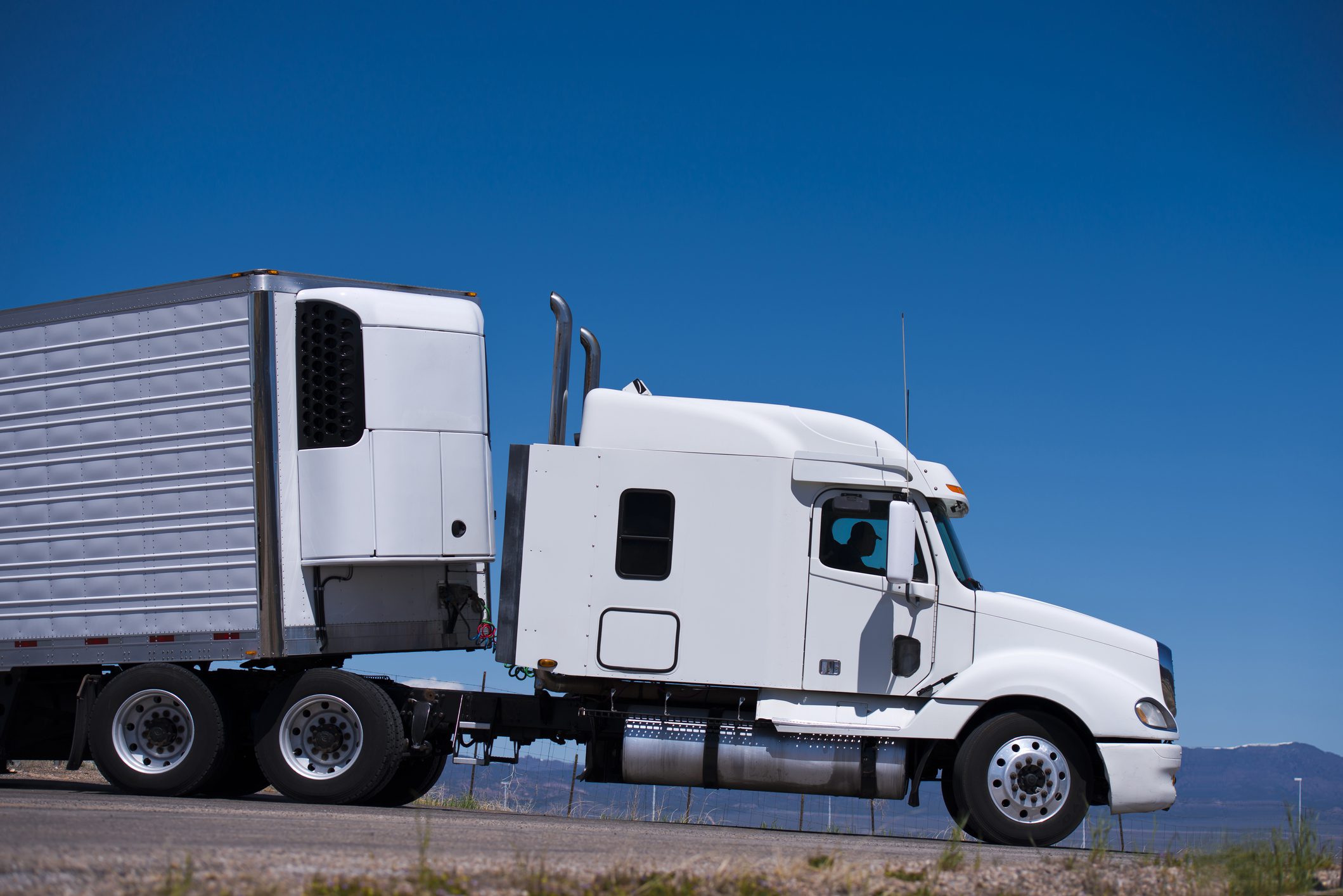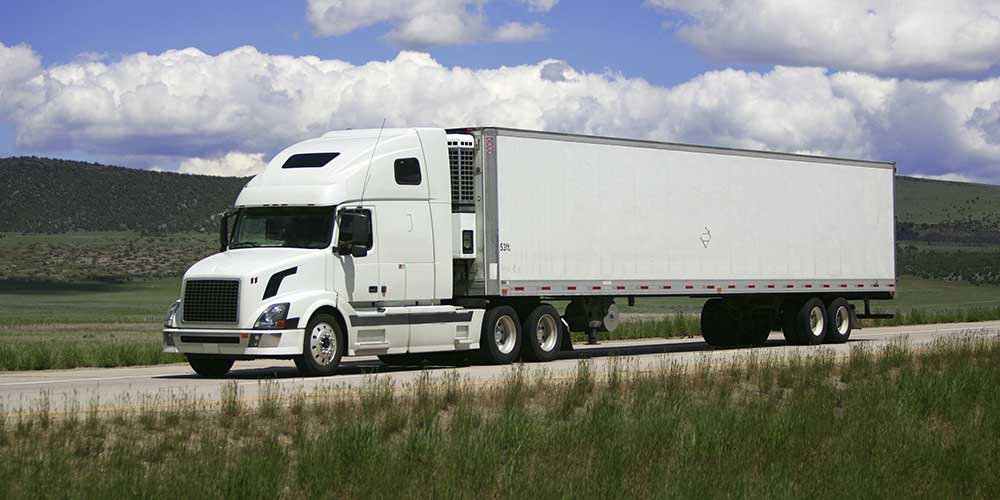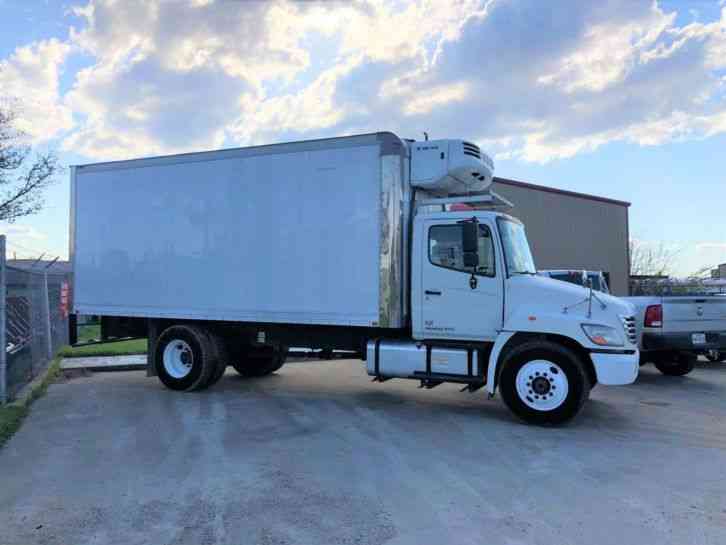Refrigerated Transportation Thermo King: Keeping Item Fresh in Transit
Wiki Article
Top Innovations in Transportation Refrigeration: Enhancing Effectiveness and Safety
The landscape of transport refrigeration is going through considerable change, driven by technologies intended at enhancing both performance and security. Secret developments such as smart temperature tracking systems, environment-friendly refrigerants, and automated path optimization are pivotal in resolving the sector's challenges. These innovations not only make certain the stability of temperature-sensitive products but also contribute to sustainability initiatives. As these technologies proceed to develop, it is crucial to discover their ramifications on functional techniques and regulative conformity, motivating a closer evaluation of exactly how they improve the future of transport refrigeration.Smart Temperature Keeping An Eye On Solutions
In the realm of transport refrigeration, clever temperature surveillance systems have actually emerged as a crucial technology for ensuring the stability of temperature-sensitive products. These advanced systems utilize Internet of Things (IoT) technology to supply real-time information on temperature level changes, enabling operators to keep optimal conditions throughout the supply chain. By continually tracking the temperature of cooled containers and cars, companies can promptly identify inconsistencies that might jeopardize product quality.
Moreover, smart tracking systems commonly include automated notifies and notifications, allowing stakeholders to respond quickly to any prospective concerns. This positive approach not only reduces the danger of wasting yet additionally boosts compliance with regulative criteria controling food security and pharmaceutical transport.
The combination of data analytics within these systems additionally facilitates predictive maintenance, assisting drivers to visualize prospective equipment failures prior to they happen. This capability lowers downtime and maximizes operational efficiency, eventually bring about cost savings.
Eco-Friendly Refrigerants
Smart temperature tracking systems play an essential duty in maintaining product high quality, however the performance of transportation refrigeration additionally hinges on the choice of cooling agents used. In contrast, emerging options like hydrocarbon-based refrigerants and hydrofluoroolefins (HFOs) present lower GWP choices, using both performance and sustainability.
These environmentally friendly refrigerants not only lessen ecological effect however additionally straighten with international laws focused on phasing out damaging compounds. Their adoption can result in enhanced energy efficiency, ultimately reducing operating expense for transportation refrigeration systems. The usage of all-natural refrigerants, such as ammonia and carbon dioxide, has obtained grip due to their exceptional thermodynamic homes and lower ecological impact.
Investing in eco-friendly cooling agents is not just a regulative compliance measure; it stands for a critical choice that boosts brand reputation and promotes customer loyalty. thermo king truck refrigeration. By focusing on sustainable techniques, firms can add to a greener future while ensuring the honesty of transferred items
Advanced Insulation Products
Utilizing innovative insulation materials is critical for maximizing transport refrigeration systems, as they dramatically improve power effectiveness and keep consistent temperature level control. Conventional insulation approaches typically drop short in stopping thermal transfer, leading to boosted power usage and rising and fall temperatures within cooled areas.Emerging materials such as vacuum cleaner shielded panels (VIPs) and aerogels offer remarkable thermal resistance, enabling thinner profiles without jeopardizing efficiency. VIPs, for instance, use a vacuum cleaner layer to decrease conductive and convective warm transfer, making them excellent for space-constrained applications. Aerogels, known for their permeable and light-weight structure, give extraordinary insulation while substantially reducing overall system weight.
Furthermore, integrating stage adjustment products (PCMs) right into insulation systems can further stabilize temperatures during transit. These materials take in and release thermal power, successfully buffering versus exterior temperature level variants.
The assimilation of these innovative insulation products not just lowers the functional prices connected with power intake but also extends the shelf life of temperature-sensitive goods. As the transport refrigeration industry remains to progress, the fostering of ingenious insulation modern technologies will certainly be essential in improving both effectiveness and safety in refrigerated transport.
Automated Route Optimization
The efficiency of transportation refrigeration systems is significantly enhanced via automated course optimization, which leverages innovative formulas and real-time data to identify the most reliable courses for shipment. By evaluating various variables such as web traffic patterns, weather condition conditions, and distribution home windows, these systems can substantially decrease traveling time and gas consumption.Automated route optimization decreases human error and subjective decision-making, which can lead to inefficiencies. This innovation allows fleet supervisors to designate resources better, guaranteeing that chilled products maintain their called for temperature throughout the trip. By enhancing routes, firms can likewise boost client satisfaction with timely shipments.
Moreover, automated systems can adjust to unforeseen conditions, such as road closures or abrupt web traffic spikes, permitting for dynamic rerouting. This adaptability not only protects the honesty of temperature-sensitive products however also adds to overall functional effectiveness.
Applying automated path optimization can cause substantial expense financial savings while minimizing the carbon impact associated with transport. As businesses progressively focus on sustainability, this development stands out as a vital component in modern transportation refrigeration, straightening functional goals with ecological obligation. Inevitably, automated course optimization represents a considerable innovation in the quest for efficiency and security in transport refrigeration.

Real-Time Data Analytics
Automated route optimization significantly take advantage of the assimilation of real-time information analytics, which supplies essential insights into the efficiency of transportation refrigeration systems. By making use of real-time information, transportation drivers can monitor temperature changes and devices efficiency, making sure that subject to spoiling goods are maintained within required parameters throughout transportation. This aggressive strategy not only enhances the top quality of the carried products however also minimizes the his response risk of perishing and loss.
Along with enhancing effectiveness, real-time analytics boosts security by making sure compliance with governing standards for temperature level control. This not only shields public health and wellness yet additionally fortifies a firm's credibility - refrigerated transportation thermo king. As the transport refrigeration sector develops, the integration of real-time visit this web-site information analytics emerges as a keystone for driving advancement, sustainability, and operational quality
Conclusion
To conclude, the improvements in transport refrigeration dramatically improve both performance and security within the industry. Smart temperature level monitoring systems and real-time information analytics provide critical oversight, while environment-friendly refrigerants and progressed insulation materials add to sustainability and power effectiveness. Moreover, automated course optimization algorithms not only lower travel time yet likewise lessen environmental effect. Jointly, these innovations stand for a critical development in transportation refrigeration, ensuring compliance with governing criteria and advertising a greener future.The landscape of transportation refrigeration is undergoing significant change, driven by developments aimed at improving both performance and safety and security.Smart temperature level surveillance systems play an important function in keeping item quality, however the efficiency of transport refrigeration also hinges on the option of refrigerants used. Their fostering can lead to improved power effectiveness, eventually decreasing operating costs Get More Information for transportation refrigeration systems. Inevitably, automated course optimization represents a considerable improvement in the mission for efficiency and safety in transportation refrigeration.
In final thought, the improvements in transport refrigeration substantially improve both efficiency and safety within the industry.
Report this wiki page